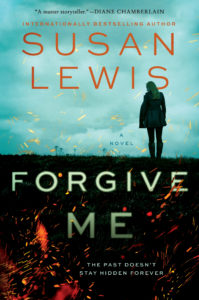Although I’ve produced a book or two a year for the past thirty years it’s a truth still to tell that publishers continue to struggle to slot my output into a specific genre. You might ask what is a genre other than a label made up for the purposes of marketing and easy introduction. It rarely encapsulates everything that goes on in a book, is used simply to make a sale quicker and more achievable, and I guess there’s nothing wrong with that.
However, doesn’t it leave us wondering what we might be missing if we “never read crime” or we “scorn romance” or “wouldn’t go near science-fiction”? I can’t imagine there’s an author alive whose only real concern when writing a book is to be true to the story. Trying to make things conform to a given genre is constricting in a way no self-respecting writer would ever allow. True, the main character might be a detective, or a lawyer, or a British redcoat at the time of the Revolution, but that is never where he or she begins and ends.
Fortunately my books have managed to find their way through to the shelves in spite of not settling into recognized genres, often because someone has just decided to slot it into one that fits at least some of the story. I guess this isn’t a bad way to go, at least it’s out there and even if it isn’t in the category you think it should be in, going cross-genre can be an extremely effective way of reaching readers who might not otherwise pick up “that sort of book.”
The most uplifting reviews I receive are those that say ‘I’ve never read this author before; the story was nothing like I expected—definitely going to read more.’ (This can often have more to do with the jackets than the genre, but that’s for another time.) These comments usually follow me writing for a publication such as this one, with crime not being my natural home even though it features large in many of my books. However, I wouldn’t call myself a crime-writer for the simple reason that I see people, situations, stories as so much more than the act that pins them to a single misdeed, even if it is murder.
I believe it’s hugely important for new writers, especially, to be brave enough to write as expansively and truthfully as their fertile imaginations will allow. Trying to conform is only ever going to be restrictive. What matters is understanding that story is always king and characters are there to serve in the most effective way possible, while genre doesn’t really come into it until the creative process is over.
Below is a short list of books and authors who, for me, fall into a cross-genre, or even genre-less category. Some you will know because they are primarily marketed in a favoured genre, others you might not, because they have been published under other labels.
The Bernie Gunther series of books by Phillip Kerr are, for me, classic examples of cross-genre fiction. Gunther might be a big, burly German detective, making the stories fit easily into crime, but they are also gripping historical tales, sexily-romantic and the comedy is laugh out loud. (For Audio fans Jeff Harding’s narrations of these books are in a performance league of their own.)
Suite Francaise by Irene Nemirovsky. The author’s ambition here was to create a “symphony” of five novels, but she only completed two before she was arrested by the Nazis, taken to Auschwitz and never came back. Her daughters found the manuscripts many years later and they were published as a single book although they tell two very different stories. The first is of war time horror told with wonderfully wry observation of the escape from Paris, and the second is a haunting and extremely subtly told love story.
The Lymond Chronicles by Dorothy Dunnett is a series of six books that weave through every genre ever known and perhaps creates a few of its own. The writing is unusual, unique even, the settings are spectacular in an historical sense, and the stories of crime, treason, horror, supernatural forces and cunning are like nothing I’ve read before or since. They also tell one of the most powerful love stories I’ve ever read.
The Expanse novels by James SA Corey are gripping sci-fi but also profound, political novels. One of the things that struck me the most is the character of Marco Inaros, who is an incredibly dangerous man in a way that has a great bearing on the current mess we are in in the U.K. and the US. He’s a person who is completely incapable of admitting that he’s made a mistake or taking blame for anything; there is no such thing as objective truth as far as he’s concerned…
Daphne du Maurier—can you imagine which genre she’d fit into were she first being published today? Most likely she’d end up in “literature” which is fine, but not fertile ground for new authors. Her works are so full of darkness and mystery, immorality, the most sinister of crimes and some terrifying mind games. And let’s not forget the romance.
Jodi Piccoult is often lumped into the categories of “Commercial Fiction” or “Women’s Fiction” almost derogatory terms these days that set books up as fast and easy reads of a throwaway nature. On the other hand, being seeded into these genres can help to get more copies out there and build an author’s name going forward, although it’s debatable whether the author goes on to acquire the reputation they deserve. Piccoult often allows her detailed research to get in the way of the story, but there’s no doubt that she covers just about every genre, even including fantasy, and the quality of her writing is far more literary than is generally recognized.
*


















